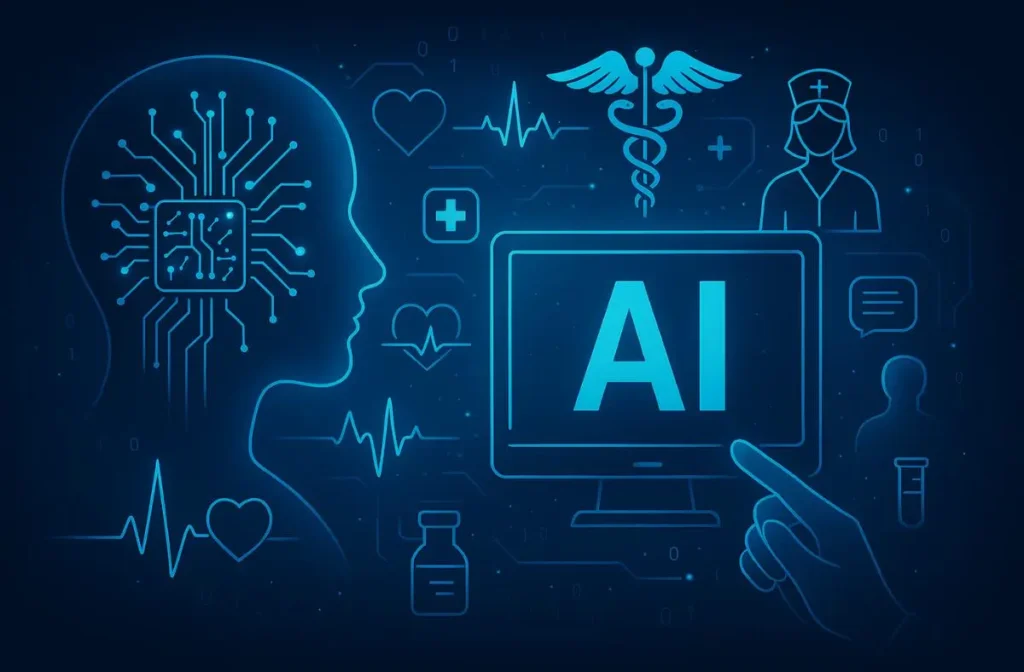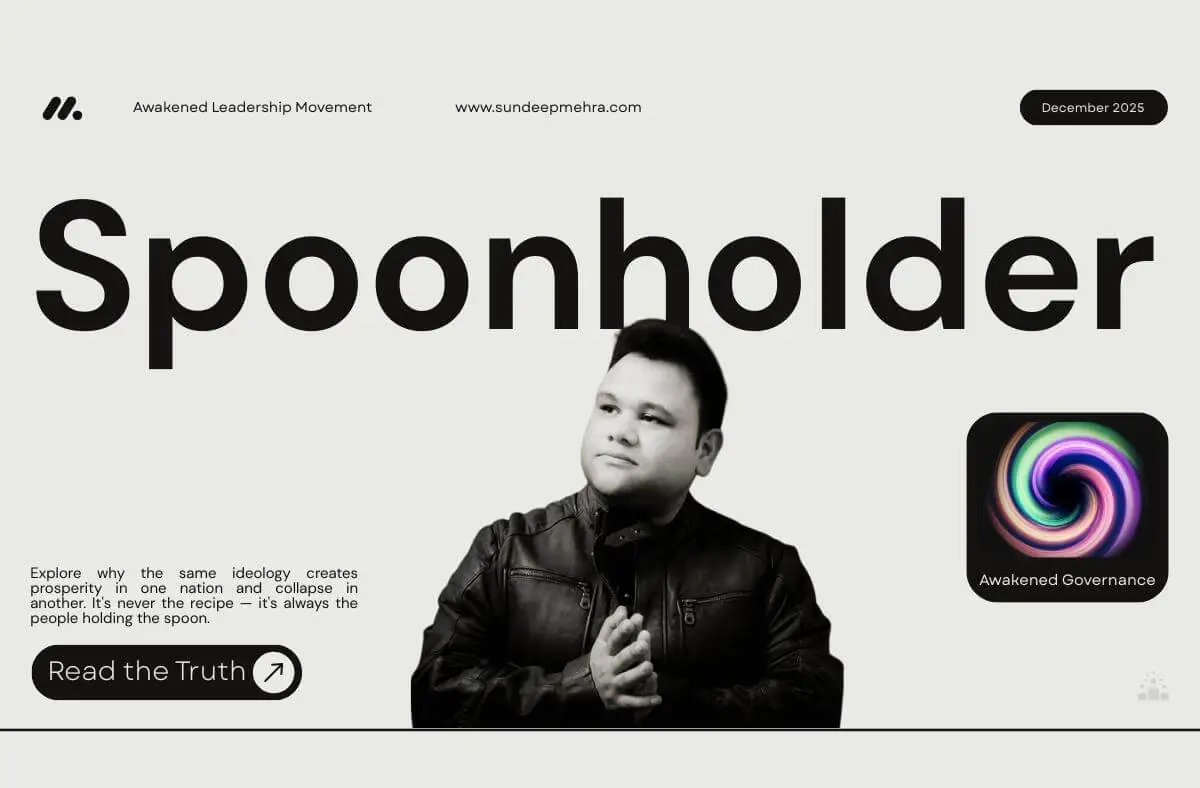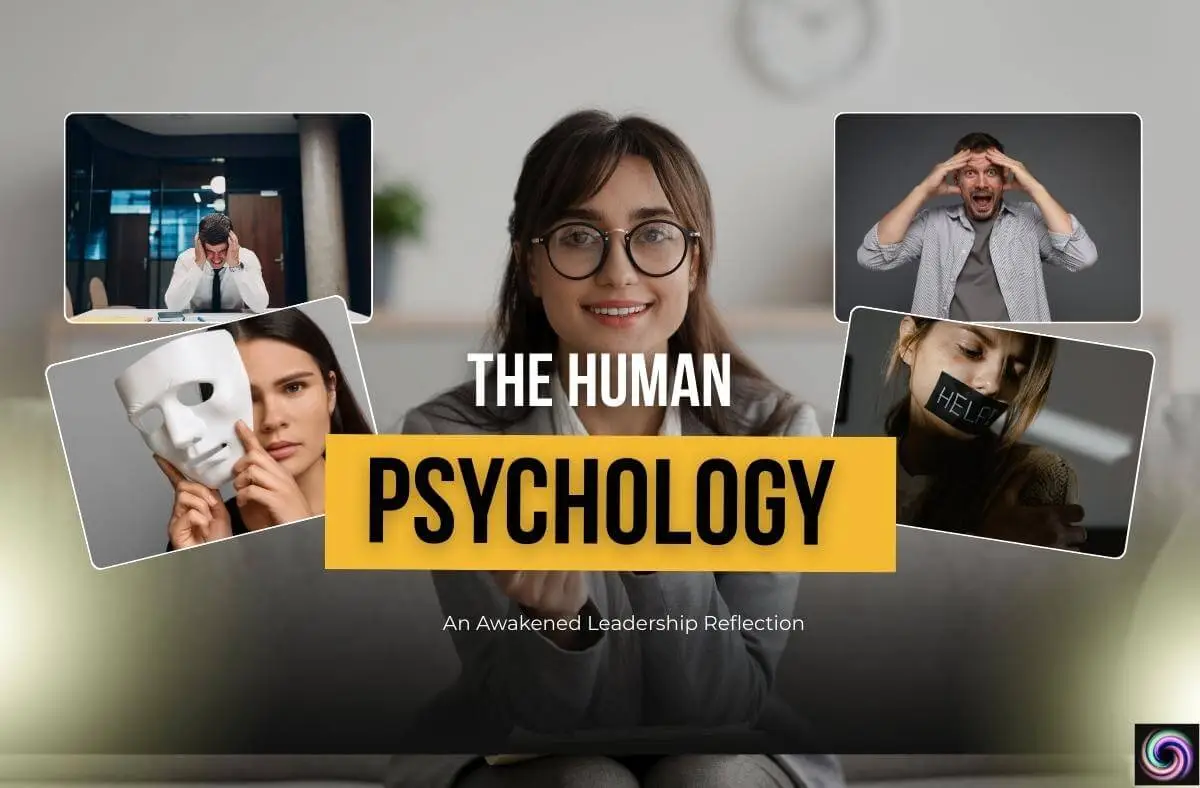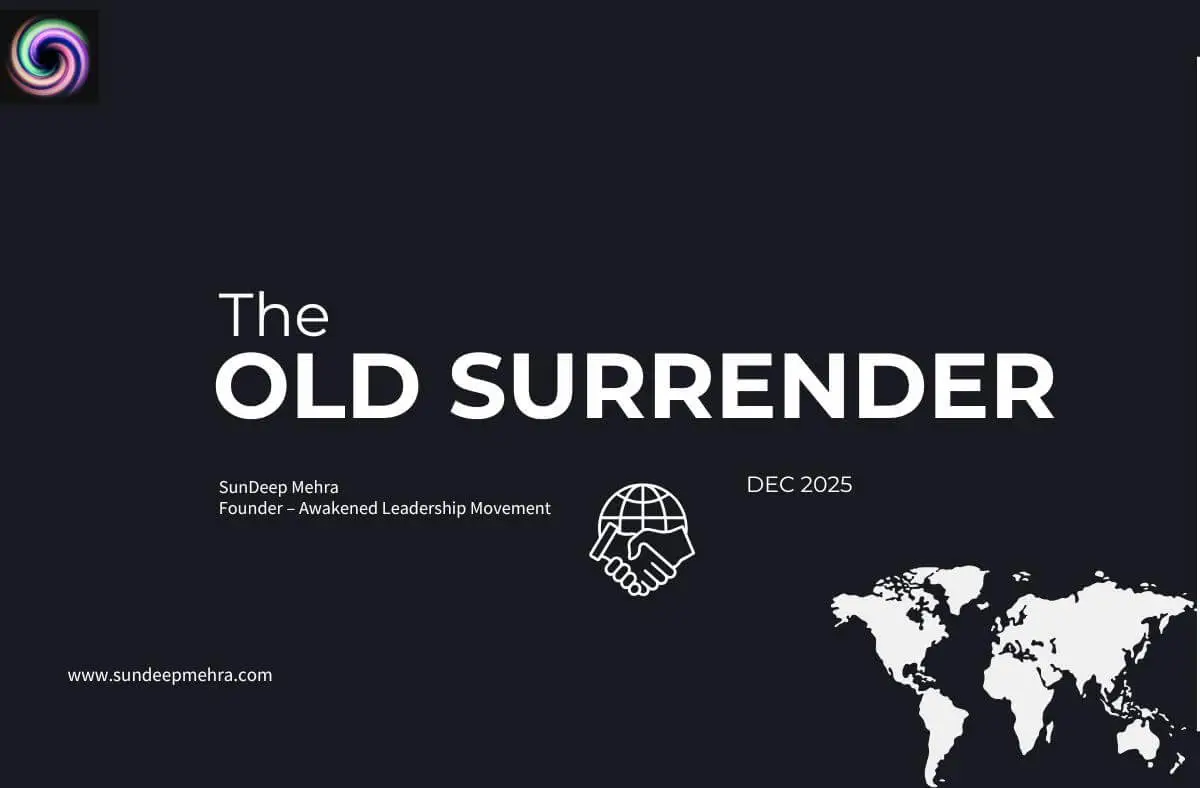
AI governance in healthcare is standing at a threshold. Artificial Intelligence is no longer a futuristic idea reserved for research labs and speculative conferences; it is here, transforming how patients are diagnosed, how hospitals are managed, and how everyday health is tracked. In 2024, the global AI-in-healthcare market was already valued at around USD 26 billion, projected to climb to nearly USD 190 billion by 2030.
From wearable monitors that record our heart rhythms in real time to AI algorithms that scan X-rays with incredible speed and accuracy, the integration of AI into healthcare is moving faster than most could have imagined even a decade ago. This is not projection alone, AI is active today: roughly 65% of U.S. hospitals are using AI-assisted predictive models, and by 2025, estimates suggest up to 90% of hospitals worldwide will deploy AI for early diagnosis and remote monitoring.
The surge in value is matched by ongoing momentum in innovation capital. In April 2025, HelloCareAI raised USD 47 million to expand its AI-driven virtual care platform for smart hospitals. The initiative focuses on enhancing patient care through AI-assisted nursing, remote monitoring, and efficient workflow management. This growth shows why AI Governance in Healthcare must keep pace with innovation to ensure trust and accountability.
AI’s Rapid Rise in Healthcare
Yet, as with every leap in human history, this transformation carries within it both promise and peril. What excites us at first glance, the efficiency, the accuracy, the speed, also reveals deeper questions about humanity, ethics, and governance. This is where Awakened Leadership, Awakened Innovation, and Awakened AI Governance step forward.
As the global pioneer of the Awakened Leadership and the Founder of Awakened Leadership Movement, I see the rise of AI in healthcare not just as a technological revolution, but as a test of human consciousness. The real question is not whether AI can transform healthcare, it already is, but whether we as leaders, innovators, policymakers, and caregivers are awake enough to guide this transformation with wisdom.
The Promise of AI in Healthcare
There is no denying the extraordinary possibilities. In clinical studies, AI in diagnostic imaging has shown greater than 95% accuracy in detecting critical conditions such as lung cancer or retinal disorders, accuracy levels that often rival or surpass human radiologists. AI can enhance diagnostic imaging, helping radiologists detect tumors or internal injuries that the human eye may miss. It can accelerate drug discovery, reducing the time it takes to move from molecule to medicine. It can streamline hospital management, automating administrative tasks that once consumed hours of human effort. Predictive analytics can flag early signs of disease, enabling preventive care before a condition becomes life-threatening.
Even the everyday patient is touched by AI. Symptom checkers and health chatbots provide instant responses, while wearables monitor heart rate, sleep patterns, and oxygen levels, giving us a mirror into our own health in real time. Robot-assisted surgeries are now possible with extraordinary precision, reducing recovery times and improving surgical outcomes.
If we measure success by speed, efficiency, and technical accuracy, AI is already proving itself indispensable. In the next 2 to 3 years, we will see even deeper integration across radiology, oncology, cardiology, drug creation, data management, and patient engagement. The potential is breathtaking.
Explore Deep Dive Podcast:
The Concerns We Cannot Ignore
But every promise carries its shadow. The same technologies that fascinate us also raise profound concerns. A single breach can compromise the medical records of millions, like the 2024 UnitedHealth hack that exposed data of approximately 192.7 million individuals, marking the largest healthcare breach in U.S. history. When sensitive medical records are digitized and analyzed, how do we ensure they are not misused or breached? A single vulnerability in an AI-driven system could compromise the trust of millions.
Misdiagnosis and error remain risks. While AI can be astonishingly accurate, it is not infallible. Blind reliance on a machine’s recommendation could lead to dangerous outcomes if not cross-verified by human expertise. Such risks highlight why AI governance in healthcare, supported by AI regulation and ethics, is essential, not as an afterthought, but as a safeguard that keeps human oversight at the center of care.
The lack of human touch is another growing concern. Healthcare is not just about treatment; it is about healing, empathy, and human connection. As AI tools become more dominant, there is a risk of reducing patients to data points and healthcare providers to machine operators. This detachment may save time but could leave patients feeling isolated and unsupported.
Job displacement is another looming reality. As hospitals and clinics automate more tasks, many healthcare roles, particularly administrative and even certain clinical positions, face disruption. This is not simply a question of efficiency but of human livelihood and dignity.
And finally, there is the danger of over-reliance on technology. AI is powerful, but it is not wisdom. If healthcare systems treat it as the final authority, we may lose the balance of human judgment, compassion, and ethical reasoning that defines true care.
Where Healthcare Is Heading in the Next Five Years
Looking ahead, AI will continue to expand rapidly across multiple layers of healthcare. Diagnostics will become faster and sharper, drug creation will accelerate, and hospital management will run with unprecedented efficiency. Patients will increasingly interact with AI-powered digital consultations, wearables, and predictive tools. AI Governance in Healthcare frameworks will be forced to adapt to an entirely new reality, where data is as important as medicine and algorithms as influential as doctors.
In five years, it is likely that most major hospitals will function on hybrid intelligence, a partnership between humans and AI systems. By 2025, 90% of hospitals are expected to utilize AI‑powered technology for early diagnosis and remote patient monitoring. Surgeries will often be robot-assisted. Health data will be continuously collected and monitored, not just during annual check-ups but throughout daily life. Treatment plans will be personalized at the genetic and behavioral level.
Yet, this progress will bring us face-to-face with critical ethical dilemmas. Who owns the data generated by patients? Who is responsible if an AI-driven diagnosis is wrong? How do we protect against biases coded into algorithms? And how do we ensure that technology does not strip away the human essence of care?
The Need for AI Governance in Healthcare
This is why AI Governance in Healthcare, or what I call Awakened AI Governance, is not just a concept, but a necessity. In January 2024, the World Health Organization released AI governance and ethics guidance specifically for healthcare, offering over 40 meaningful recommendations for governments, tech companies, and care providers, highlighting that ethics must be baked into every stage of AI development and deployment.
Governance in the age of AI cannot be reduced to technical compliance or regulatory checklists. It must be rooted in awareness, responsibility, and a commitment to human dignity.
Awakened AI Governance: Questions That Redefine Technology
Awakened AI Governance asks deeper questions:
- Are we conscious of the human impact behind every algorithm?
- Do our systems protect not only data, but also trust?
- Are we building healthcare systems that are more human through technology, or less?
This is governance as an awakened act, not simply controlling technology, but guiding it toward outcomes that uplift humanity rather than diminish it.
Awakened Innovation complements this vision by ensuring that every breakthrough is not only technically impressive but also ethically aligned. Innovation without awareness risks creating systems that are efficient but dehumanizing. Awakened Innovation ensures that progress is measured not only in speed or accuracy, but in how deeply it honors the human spirit, the essence of ethical AI governance.
Watch Explainer:
The Role of Awakened Leadership
This brings us back to leadership. Traditional leadership frameworks are insufficient for this moment. They measure progress in terms of profit, speed, or efficiency. Awakened Leadership, by contrast, sees leadership as the awakening of human potential and responsibility.
In the context of healthcare, Awakened Leadership means recognizing that technology alone cannot define the future of care. It is human consciousness, the awareness of our values, ethics, and interconnectedness, that must shape how AI is deployed. Leaders in medicine, technology, and governance must not simply chase the latest innovation but must pause, reflect, and act from clarity. This responsibility extends beyond hospitals into AI in the public sector, where government health policies and public health programs increasingly depend on algorithmic systems.
The Awakened Leadership Movement is dedicated to this shift. It is about creating leaders who do not just manage technology, but who awaken themselves and others to its deeper implications. Leaders who ensure that AI becomes not a force of detachment and displacement, but of empowerment, healing, and unity.
As an international speaker on awakened leadership and AI governance, I bring this vision to global platforms, inspiring leaders across healthcare, policy, and innovation.
---
Awakened Leadership is more than theory — it’s a lived practice. Discover how awakened models of leadership can guide AI governance in your institution.
---
What Is at Risk If We Fail
If we do not awaken to this responsibility, the risks are immense. We could create healthcare systems that are efficient but soulless, accurate but disconnected, advanced but unjust. Patients could become numbers, doctors could become machine operators, and the very essence of healing could be lost.
We could see widespread job displacement without creating new pathways for human contribution. We could witness growing inequality, where advanced AI-driven healthcare is available to some but not to all. And we could fall into a cycle of blind trust in machines, losing the balance of human judgment that defines wise care.
What Is Possible If We Awaken
But if we embrace Awakened AI Governance, the future is profoundly hopeful. We can create healthcare systems that are faster and more accurate, while still rooted in empathy and trust. We can empower doctors and nurses with tools that amplify their abilities rather than replace them. We can protect patient privacy while unlocking the power of data for collective health. At the organizational level, strong enterprise AI governance can ensure hospitals and health systems adopt AI responsibly, aligning efficiency with ethics.
Wearables can become not just tracking devices, but companions in self-awareness. Robot-assisted surgeries can reduce suffering while still being guided by human wisdom. Predictive analytics can prevent diseases before they occur, creating a future where healthcare is proactive rather than reactive.
Through Awakened Innovation, every advancement can be aligned with human dignity. Through Awakened Leadership Model, governance can evolve from control to consciousness, from regulation to responsibility, from efficiency to empathy.
The Next Five Years and Beyond
In the next five years, AI will undoubtedly become an essential part of healthcare. The question is not whether it will happen, but how it will happen. Will we allow it to unfold unconsciously, driven by profit and efficiency alone? Or will we step into Awakened Leadership, guiding it with awareness, wisdom, and humanity?
The answer to this question will shape the future of health, and define the very AI governance strategy that leaders must carry into the coming decades.
The Call of Awakened AI Governance
The integration of AI into healthcare is both inevitable and transformative. But it is not enough to celebrate its potential or fear its risks. We must move beyond compliance and into responsible AI governance, governance rooted in awakened consciousness and human dignity.
This is the role of the Awakened Leadership Movement in our times: to ensure that as we move into a future shaped by AI, we do not lose ourselves but instead rediscover what it means to be human.
The Future Demands Awakened AI Governance
Healthcare is not simply about curing disease; it is about nurturing life. AI can be a partner in this journey, if we choose to awaken and prioritize AI governance in healthcare as the foundation for future patient care
AI Governance in Healthcare demands not just regulation, but awakened leadership. As an international speaker and advisor, I help leaders, boards, and policymakers bring clarity, responsibility, and vision into the age of AI. If you’re shaping the future of healthcare, invite me to speak at your forum or explore a leadership advisory session — and join the Awakened Leadership Movement in redefining governance for humanity.
















